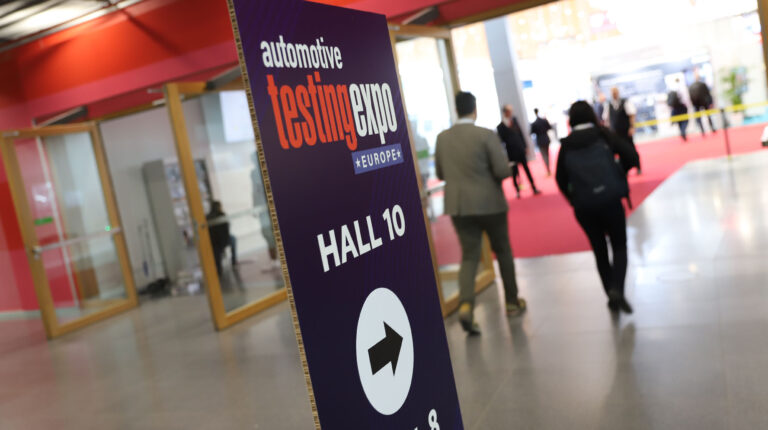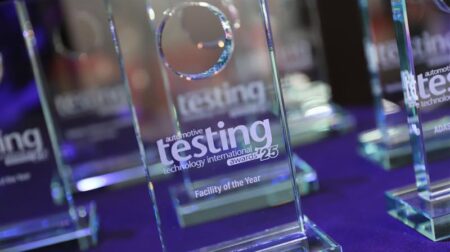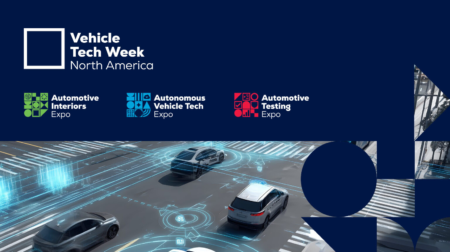Automotive Testing Expo Europe 2025, which took place May 20, 21 and 22 at the Messe Stuttgart in Germany, was staged at a time of unprecedented change and rapid transformation within the mobility industry. Offering an ideal platform for industry professionals to explore the latest in testing technologies, software solutions and practical frameworks, the event served as a timely response to the industry’s ongoing challenges amid market volatility, regulatory pressures and evolving standards. With more than 300 specialist suppliers in attendance, visitors had direct access to expert insights and cutting-edge innovations shaping the future of automotive testing and validation.
The event featured two free-to-attend Automotive Testing Innovation Showcase stages, as well as the ATTI Forum. Attendees could also access the pay-to-attend ADAS & Autonomous Vehicle Technology Conference.
Emma Deutsch, director of the Nissan Technology Centre, commented on the expo after her onstage interview with Rachel Evans: “We come here every year from Nissan, and we really appreciate integrating and having conversations with our suppliers. We have been having some great conversations with suppliers about data and about data management. It’s great to see everybody here enthusiastic and ready for the next year ahead.”
Darío Fernandez, manager of dynamic performance at Nissan, commented, “We’re here to see, of course, how we can reduce our development time, be more efficient during our testing. It’s very interesting to see the developments in the AI part of development, how to treat the data. So, we have met with several of our suppliers here. It’s been very interesting so far. We are looking forward to the rest of the event.”
Mustapha Ikene, business development director at BYD Electronics, added, “The event is well organized and there are lots of exhibitors. The sign of its success is [the many] attendees at the expo. We are happy because there have been lots of exchanges with exhibitors, and we have established some opportunities for partnerships.”
Exhibitor highlights
Visitors to Automotive Testing Expo Europe 2025 had the opportunity to explore the latest technologies across a wide range of areas. Alongside these innovations, attendees engaged with key industry players and discovered new contacts and potential solutions from a dynamic mix of exhibitors, including numerous startups making their debut at the event. Here are just some of the highlights from this year’s show:
Compredict showcased Compredictor, its demo vehicle featuring software‑defined sensing, with real‑time virtual sensor outputs up to 100Hz via standard CANbus, with no extra ECUs or data links. It is in series production with Renault Group, and offers comprehensive parameters including wheel forces, tie‑rod loads, driveshaft torque, tire and brake wear, robust calibration, seamless integration into existing vehicle compute architectures and more. Martin Zeller, head of virtual sensors at Compredict, commented, “Exhibiting Compredictor lets us demonstrate how virtual sensors turn every series vehicle into a rolling test lab.”
The expo also saw the launch of numerous cutting-edge test, evaluation and quality engineering technologies, alongside several exciting projects, partnerships and investments that were announced live on the show floor.
ZF launched the ZF TS bearIN roll resistance test bench for non-driven wheel bearings, which was developed to achieve significant CO2 reduction in on-road trucks. Its features include fully automated certification measurements in accordance with EU Regulation 2019/1242 and VECTO simulation and a DAkkS-calibrated measurement system. “We are showcasing our diverse product range, including test benches for transmissions and axles, e-mobility and tires, among others. This show is a great opportunity to meet our existing customers and potential new clients,” said Markus Kramer, sales and product manager at ZF Test Systems.
The SincoTec Group presented its newly developed hydrogen test cell. The cell enables tests in hydrogen atmospheres of up to 1,000 bar without any moving seals. It aims to reduce friction and wear and improve control accuracy and test frequency. Testing applications include pipelines/crack propagation up to 1,000 bar and quasistatic tear tests for gas station technology at -60°C.
imc Test & Measurement announced the global launch of FAMOS 2025, the latest evolution in data analysis software for test and measurement engineers. Introducing a new AI assistant (beta) that simplifies the creation of complex analysis sequences without coding expertise, and boasting significant upgrades in visualization, automation and data compatibility, it sets a benchmark for modern engineering analysis.
Daniel Förder, strategic product manager for software at icm Test & Measurement, explained that addressing the skills gap “is exactly the main use case for this technology. Say you are a new guy in the company and typically you ask the experienced guy questions all the time. Now you can ask AI.”
On the show floor, attendees were able to see the latest testing technologies. KFB Acoustics demonstrated its customized testing solutions, including test benches and acoustic test chambers designed to meet specific testing requirements, from material testing and component testing to complete vehicle testing. Benjamin Thiele, sales director, commented, “We aim to connect with industry professionals to discuss emerging challenges in acoustic testing, such as the increasing demand for quieter electric vehicles and the need for accurate NVH analysis in lightweight materials. We’re particularly interested in receiving feedback from visitors on how our testing solutions can be refined to meet evolving industry needs. Our mission is to explore new ways to optimize testing processes and deliver even more effective and efficient testing solutions.”
BF Engineering showcased the advantages of using AI to continuously optimize irradiation parameters in solar simulation systems. Rather than slow, error-prone manual calibration of irradiation strength, AI-driven drones can be used to scan and map details in real time, capturing an ultra-precise 4D dataset. Combined with advanced software updates, this enables automated fine-tuning, saving costs by accelerating calibration and accuracy. “Manual calibration of solar simulation systems meant exposing people to dangerous radiation. With AI and drones, we’ve made it safer, faster and smarter,” said the company’s managing director, Daniel Breuer.
You can read more news from the show, including exclusive exhibitor video interviews, here.
ATTI Awards
Organized by Automotive Testing Expo’s official publication, Automotive Testing Technology International, the 18th ATTI Awards were presented live in Stuttgart for the second year running – following their highly successful reception in 2024. The awards recognize standout projects and technologies from the past 12 months, highlighting achievements across the testing sector.
In a ceremony at the end of Day 1, show founder Tony Robinson and ATTI editor Rachel Evans revealed who had triumphed in each of the nine categories. The winners were decided by an independent panel of engineers and technical writers.
Three new categories were introduced for the 2025 awards: OEM of the Year, Supplier of the Year and Simulation of the Year.
Reflecting on the awards process, ATTI Awards chair Rachel Evans said, “Collating the shortlist this year was a breath of fresh air. It’s so fantastic to see everyone working together to overcome common difficulties and, in doing so, creating novel solutions.”
Winners on the night included Cariad, Mercedes-Benz, dSpace and Foretellix.
High-level content
The three-day Innovation Showcase and ATTI Forum provided the perfect platform to discuss the key challenges, trends and technologies shaping the automotive testing landscape.
Speaking at the Innovation Showcase, which took place on Days 1 and 2 of the expo, Tom Lohmüller, assistant to the management board at SincoTec Group, discussed new challenges and solutions in fatigue strength testing under hydrogen.
In his presentation, he provided examples showing the influence of hydrogen on fatigue strength in tension-compression tests, rotating bending tests and tensile strength tests of different materials. Particular attention was given to the need to redefine values for fracture mechanics, especially the challenge of identifying a crack in a pipeline and determining to which of the three fracture mechanics regions it belongs. However, he explained that determining these values can be highly complex due to varying framework conditions such as explosion protection, high pressures (up to 1,000 bar), temperature influences (ranging from -60°C to +700°C) and the necessity of analyzing the crack.
Another on-stage highlight was a discussion about the generational skills gap. Rachel Evans and Emma Deutsch discussed how Nissan is tackling the challenge of training the next generation of engineers by encouraging hands-on experience over purely analytical learning. Deutsch explained that the younger engineers, often accustomed to desk work and data analysis from university, need practical experience working on cars. This includes hands-on workshops and driving, which is challenging due to the high cost of vehicles and the lack of driving licenses among some young people. She said, “I can kind of visualize in my head when someone talks to me about a problem, and often I’m visualizing what me and my dad used to do [to cars] when I was young. So it’s trying to get them into that mindset of, we’re actually making a product, a tangible product. Go out there and get involved in the testing, drive the cars.” Nissan is working to provide practical opportunities and nurture this skill set, emphasizing the importance of tangible product involvement and testing.
Dates for your calendar
After another successful European show, those interested in the latest developments and innovations in testing technology should make a note of the dates for Automotive Testing Expo North America, which is taking place on October 21, 22 & 23, 2025, in Novi, Michigan, USA. The European event will return to Stuttgart on June 23, 24 & 25, 2026.
